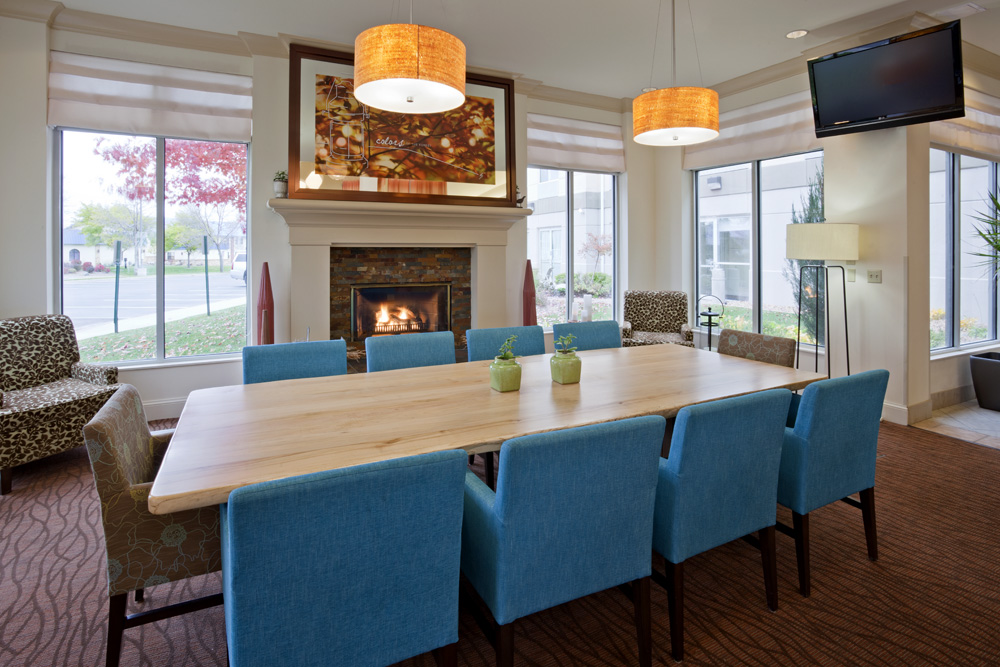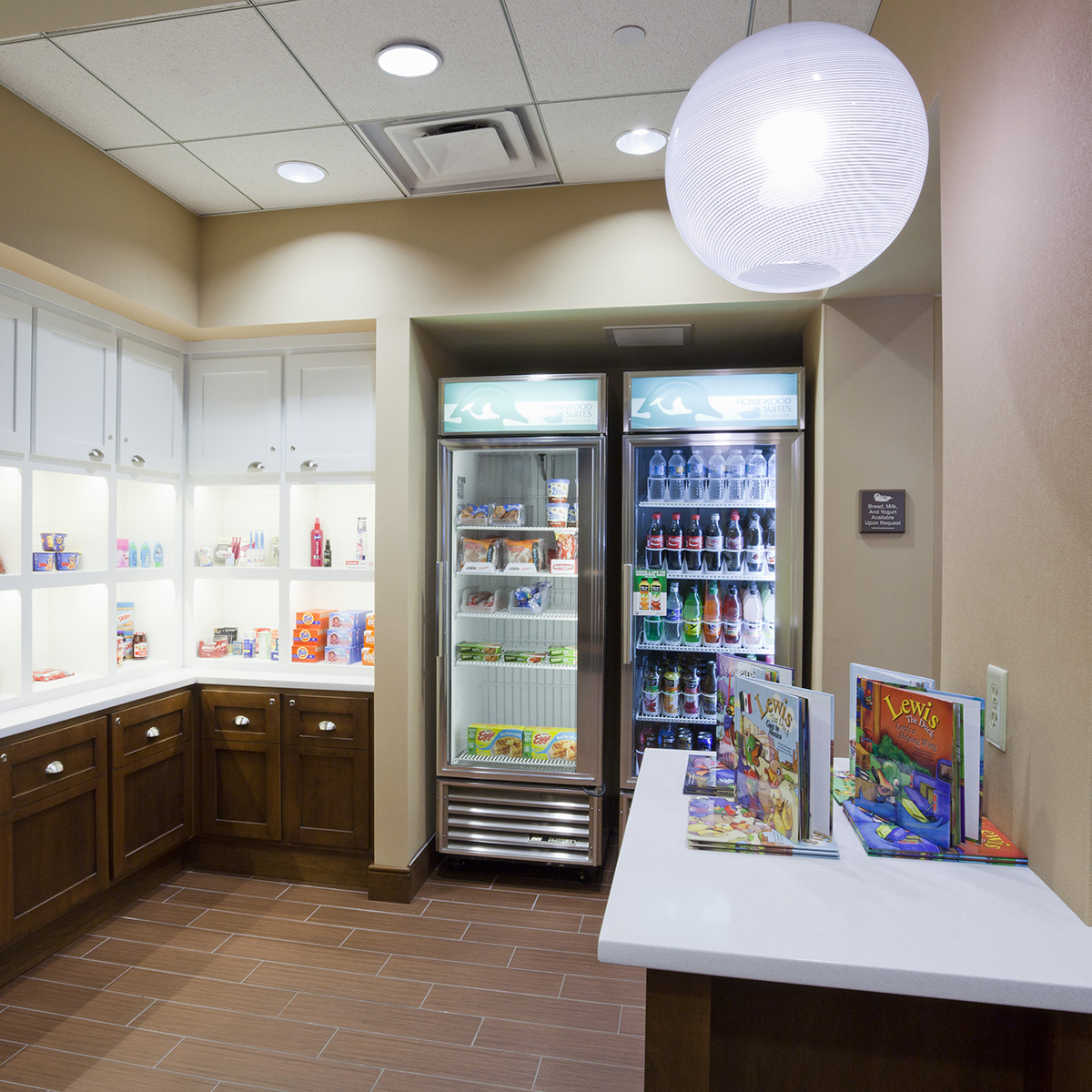How to Negotiate a Hotel PIP
ramaker insights
How to Negotiate a Hotel PIP
hospitality
Facing a hotel PIP? Get the most value from your renovations.
Travelers are returning to hotels. Will yours wow them?
The American Hotel & Lodging Association’s 2022 State of the Hotel Industry Report projects that total bookings for 2022 will approach 2019’s total stays. While consumer behaviors have changed greatly over the course of the pandemic, one thing remains the same: Hotel owners have to compete for every guest.
Looking for an opportunity to stand out? Property improvement plans give hotel owners a chance to rise above the competition, increase market share, and improve customer satisfaction.
Think of it this way: Investing in a hotel PIP means investing in better first impressions.
That beautifully updated façade may just persuade guests to book at your hotel instead of the one down the road. And when they arrive for their stay, that elegantly decorated, spacious new lobby will convince them they made the right choice.
In this post, we outline how hotel owners can prepare for their next property improvement plan. Which renovations are most valuable? What’s negotiable? We answer these questions—and more—over the course of this article.
Hotel property improvement plans, explained
A hotel property improvement plan (PIP) is an action plan created by brand managers or franchisors to bring a hotel property into compliance with the most recent brand standards. If you’re an experienced hospitality industry professional, you know that hotel owners receive PIPs pretty regularly. Expect them to happen every six to 10 years.
PIPs serve two main purposes: They help owners increase the profitability of their property, and they help brands maintain a consistent experience across properties. When executed strategically and efficiently, PIPs are a win-win. By investing in essential repairs and modernizing hotel amenities, owners can attract more guests, increase their market share, and improve their bottom lines.
Every PIP is different. Common requirements include exterior and façade renovations, updates to amenities and shared spaces, improvements for ADA compliance, and more. You can read more about what to expect in your next hotel property improvement plan here.

Want to get more value out of your hotel PIP? Follow these 5 steps.
Facing a hotel PIP? Remember that PIP renovations are often negotiable. These five steps will help you get the most value out of your investment.
Put the right A&E team in place to execute your PIP
As soon as you receive your property improvement plan, ask an experienced A&E team to review the scope.
Working with architects, designers, and engineers who have PIP experience is a sure-fire way to get the most out of your renovations. Before you move forward with your PIP, evaluate your options. Does your project team have a strong hospitality portfolio and brand experience? Industry veterans who have fulfilled similar PIPs can provide value engineering suggestions on the fly to keep your renovations on schedule and on budget.
Know what to prioritize during your PIP
Negotiating a PIP is both an art and a science. You have to know when to compromise and when to engage with the brand for cost-cutting measures. Remember: The brand is also part of your PIP project team. They’re invested in the property’s success, too.
While many aspects of a PIP are up for negotiation, there’s one type of improvement you shouldn’t resist: items that enhance guest experience. PIPs are designed to increase the desirability of your property. Therefore, any chance you have to create a great first impression is worth investing in.
Subjective items, however, can be negotiated. Flooring. Wall finishes. Ceiling tiles. The prices of these elements may vary widely. Again, enlist your PIP team to consult. They can provide pricing breakdowns and share opportunities for value engineering. Negotiating these subjective items can reduce the bill by thousands of dollars.
Define the project schedule
PIPs are full of details. The most important one? The project schedule.
Property owners can usually negotiate a timeline for the agreed upon changes—and it’s essential to do so. Your PIP shouldn’t derail guest experience. Scheduling construction to limit disruption is key. If possible, delay construction until after the busy season and schedule construction to happen in phases. For instance, you may approach renovations one floor at a time so that guests don’t have to pass through active construction areas.
Negotiate long-term maintenance items
Water heaters and roofs have to be replaced eventually. That doesn’t mean they have to be replaced during your PIP renovations. Hotel owners commonly negotiate long-term maintenance items when faced with property improvement plans. Unless these repairs need to happen as soon as possible, advocate for their removal from your PIP. Instead, you can pay for these improvements from a future capital budget.
Work with a GC you can trust
When it comes to selecting a general contractor, price shouldn’t be your only consideration. Work with a reliable GC who has relevant experience. These professionals can help you understand how much those improvements will cost. They can also identify opportunities for value engineering, reducing the overall price tag of your PIP.

Need help negotiating your next PIP?
Ramaker’s hospitality team has developed close relationships with major franchisors, keeping our architects and interior designers up to date with the latest brand standards and hotel design trends.
Read more about the firm’s hospitality brand experience here.



![Ramaker logo superimposed on construction site. [Text] Leadership transition](https://images.ramaker.com/wp-content/uploads/2022/04/27101617/leadership-transition-cover-150x150.png)